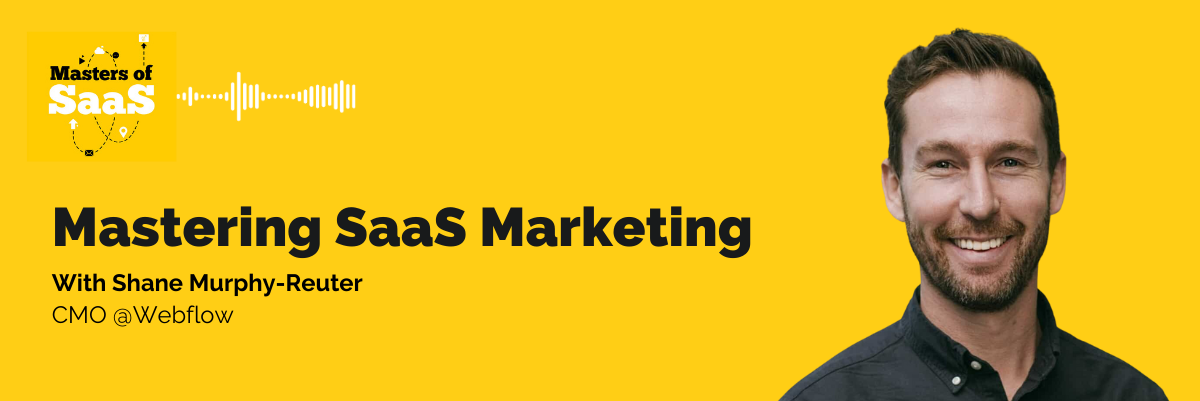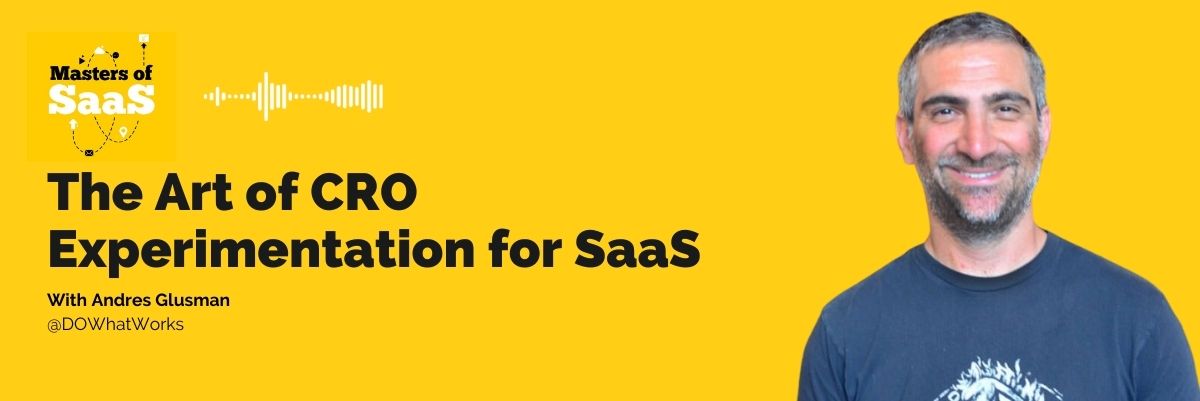Listen on Apple Podcasts Listen on Spotify Listen on Google PodcastsDave Woodward is the CEO of ClickFunnels. In just six years, the company managed to gather 125,000 customers, 350 employees and generate $150 million in annual revenue. All this with zero funding! In this episode, Dave and Todd discuss how they did it, how to build a community with your customers, and more!
In this episode, we’re talking to Dave Woodward, the CEO of ClickFunnels and host of the weekly Funnel Hacker Radio Podcast.
ClickFunnels has 125K Customers, 350 employees, and generates 150 Million in annual revenue. They achieved this in just 6 years and with zero funding.
We discuss how they used webinars to fuel the growth of the company. Interestingly they devised a strategy to increase their customers’ upfront payment to around $1000. This allowed them to spend considerably more on CAC and bypass the traditional SaaS payback period.
What else you’ll learn about:
- into Dave’s responsibilities as CEO
- the key metrics that he watches like a hawk
- the work people should prioritize to become more effective leaders.
Love the show? Please review us on Apple or Google podcasts.
Quick bio
Name: Dave Woodward
Profile: CEO at ClickFunnels and host of the weekly Funnel Hacker Radio Podcast.
Dave on the web: LinkedIn | Facebook | Instagram
Episode Highlights
Can you make more profit from your customers than it costs you to acquire them?
“To have someone pay $97, it’s going to cost us almost $400, to have that happen. In other words, we’re really four months out before we actually get a return on that.
Our whole thing is to try to find two metrics we pay a lot of attention to. Those are: what’s the cost to acquire a customer? And what’s our average cart value? For example, we knew that one of the main things when we were selling other types of information, was to provide a product or service that was bundled with information.”
How to manage time with your team
“What we try to do in the first two hours is knock out all of our meetings. We have a 30-minute executive meeting (we call it a go-meeting) that’s based on goals and objectives. The next 30 minutes is the executive team with the managers. The last 30 minutes are the managers with their team. In the end, we have a company-wide pulse meeting.
Within two hours, everyone throughout the company knows what the goals and the plans are, and the objectives and obstacles we need to overcome. Everyone knows what everyone’s working on for the week, and we target that and make sure that happens.”
How to maintain your company culture when scaling up
“I think part of that culture is helping new hires identify who the avatar is. It’s hard to fall in love with the culture if you don’t love the avatar you’re serving. And for us, the goal is to help our customers and our employees really understand who that avatar is and what pains they’re going through. Whether you’re on the dev side/customer support side/ sales side, it’s important to know what the other person on the other side is experiencing and feeling.”
Top quotes
[37:35] “Culture is something you really can’t teach or train. You can try to find the right ones. From zero to 500 employees, if you can get to that level without having an HR department and just focusing on hiring from friends and referrals, that’s going to be your best growth opportunity.”
[38:41] When growing and scaling from an employee standpoint, I highly recommend getting referrals from your existing customers. That’s by far the best way of doing it.”
[42:29] “I think, just spiritually, just the idea of giving away 10%, you pick whatever charity you want. What it does, psychologically, is it tells you you can live on less. If you can live on 90%, whatever you’re making, that in and of itself helps you overcome a lot of the fears.”
[43:30] “I think the key is making sure that you’re fiscally responsible as a business owner. People think “Oh, it’s always going to be this way!” I felt that way in 2008 – 2009. I got my teeth kicked in 2010 through 12, and realized that’s not always the case. What goes up doesn’t always have to continue going up. It typically comes down. In addition, the most important thing when it comes to money is to make sure you have a minimum of two to six months’ reserves. This way, you can make sure you can weather the storm. To conclude, there’s nothing worse as a business owner than being forced into making a bad decision because you don’t have resources.”
[46:15] I’m a huge believer in asking better questions, the better questions you ask, the better answers you’re going to get. And the only way you can ask good questions is you have to have time to think through. My meditation is a lot more thinking through a lot of the questions and things and just trying to get things quiet.




Share